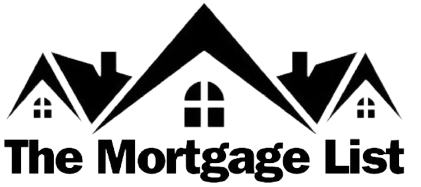Self-Employed Mortgage Loan based on Bank Statements: A Comprehensive Guide
As the gig economy grows and more individuals pursue entrepreneurship, the need for self-employed mortgage loans is on the rise. Traditional mortgages typically require stable employment and consistent income documentation, which can pose challenges for self-employed individuals. In this article, we’ll delve into the intricacies of self-employed mortgage loans based on bank statements, exploring how they work, the documentation required, tips for securing one, and the advantages and disadvantages they offer.
Understanding Self-Employed Mortgage Loans
What Are Self-Employed Mortgage Loans?
Self-employed mortgage loans are tailored for individuals who work for themselves or own their businesses. Unlike traditional mortgages, which rely heavily on W-2 forms and pay stubs to verify income, self-employed mortgage loans consider alternative documentation, such as bank statements.
Challenges Faced by Self-Employed Individuals
Self-employed individuals often face hurdles when applying for mortgages due to irregular income streams and difficulty in proving steady earnings. Lenders may view them as high-risk borrowers, making loan approval more challenging.

Importance of Bank Statements in Self-Employed Mortgage Loans
Bank statements play a crucial role in self-employed mortgage loans. They provide a comprehensive overview of an individual’s financial health, including income deposits, expenses, and account balances. Lenders use bank statements to assess the borrower’s ability to repay the loan.
How Self-Employed Mortgage Loans Work
Documentation Required
In addition to standard documentation required for all mortgages, such as identification, proof of assets, and credit history, self-employed individuals must provide additional documents to verify their income. These may include tax returns, profit and loss statements, and, most importantly, bank statements.
How Bank Statements Influence Loan Approval
Lenders scrutinize bank statements to verify income consistency, assess cash flow patterns, and evaluate the borrower’s financial stability. Clean and accurate bank statements can significantly increase the likelihood of loan approval, while discrepancies or irregularities may raise red flags.
Calculating Income from Bank Statements
Lenders use various methods to calculate income from bank statements, such as averaging deposits over a specified period or considering the average monthly balance. This approach helps determine the borrower’s sustainable income and repayment capacity.
Debt-to-Income Ratio and Self-Employed Individuals
Debt-to-income (DTI) ratio is a critical factor in mortgage approval, representing the percentage of the borrower’s monthly income that goes toward debt payments. Self-employed individuals may have higher DTI ratios due to fluctuating income, making it essential to manage debts effectively.
Tips for Securing a Self-Employed Mortgage Loan
Maintaining Clean and Accurate Bank Statements
Regularly monitor and maintain clean and accurate bank statements, avoiding overdrafts, large cash deposits, or unusual transactions that could raise concerns during the loan approval process.

Building a Strong Credit Score
A good credit score demonstrates financial responsibility and can offset some of the risks associated with self-employment. Pay bills on time, keep credit card balances low, and avoid opening new accounts before applying for a mortgage.
Seeking Professional Advice
Consult with a mortgage broker or financial advisor experienced in working with self-employed individuals. They can offer guidance on the best loan options, help navigate the application process, and provide valuable insights into improving financial health.
Exploring Different Lenders and Loan Options
Don’t settle for the first mortgage offer you receive. Shop around and compare rates, terms, and fees from multiple lenders to find the most favorable loan option that suits your needs and financial situation.
Advantages and Disadvantages of Self-Employed Mortgage Loans
Advantages
- Flexibility in income documentation
- Ability to qualify for a mortgage without traditional employment verification
- Opportunity to deduct business expenses to lower taxable income
Disadvantages
- Higher interest rates or stricter eligibility criteria
- Increased scrutiny and documentation requirements
- Limited access to certain loan programs or government-backed mortgages
Conclusion
Navigating the world of self-employed mortgage loans can be challenging, but with the right knowledge and preparation, it’s possible to secure financing for your dream home. By understanding the importance of bank statements, maintaining financial discipline, and seeking professional advice, self-employed individuals can overcome obstacles and achieve their homeownership goals.

FAQs (Frequently Asked Questions)
- Can I qualify for a self-employed mortgage loan if I have irregular income?
- Yes, lenders consider various factors beyond traditional employment when assessing loan eligibility, including bank statements and overall financial stability.
- Do I need to provide tax returns for a self-employed mortgage loan?
- Tax returns are commonly required to verify income for self-employed borrowers, but bank statements play a significant role in demonstrating income consistency.
- How far back do lenders typically review bank statements for mortgage applications?
- Lenders may review bank statements for the past 12 to 24 months to assess income patterns and financial behavior.
- Can I use business bank statements instead of personal ones for a self-employed mortgage loan?
- It depends on the lender and the structure of your business. Some lenders may accept business bank statements, especially for sole proprietors, while others may require personal statements.
- Are self-employed mortgage loans more expensive than traditional mortgages?
- Self-employed mortgage loans may have slightly higher interest rates or stricter eligibility criteria due to perceived risks, but rates vary depending on the lender and the borrower’s financial profile.
Read More:>

